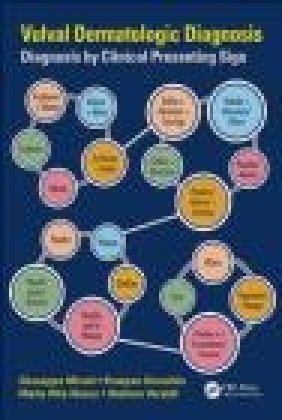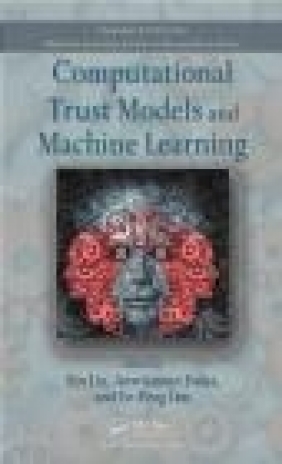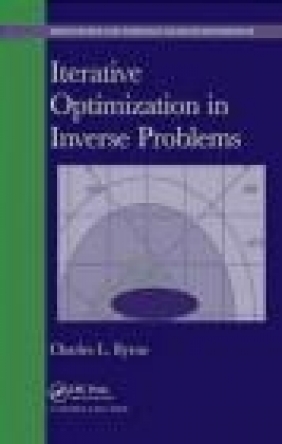Computational Trust Models and Machine Learning
Computational Trust Models and Machine Learning
- Producent: Apple
- Rok produkcji: 2014
- ISBN: 9781482226669
- Ilość stron: 232
- Oprawa: Twarda
Niedostępna
Opis: Computational Trust Models and Machine Learning
Computational Trust Models and Machine Learning provides a detailed introduction to the concept of trust and its application in various computer science areas, including multi-agent systems, online social networks, and communication systems. Identifying trust modeling challenges that cannot be addressed by traditional approaches, this book: * Explains how reputation-based systems are used to determine trust in diverse online communities * Describes how machine learning techniques are employed to build robust reputation systems * Explores two distinctive approaches to determining credibility of resources-one where the human role is implicit, and one that leverages human input explicitly * Shows how decision support can be facilitated by computational trust models * Discusses collaborative filtering-based trust aware recommendation systems * Defines a framework for translating a trust modeling problem into a learning problem * Investigates the objectivity of human feedback, emphasizing the need to filter out outlying opinions Computational Trust Models and Machine Learning effectively demonstrates how novel machine learning techniques can improve the accuracy of trust assessment.Preface List of Figures List of Tables Contributors Introduction Overview What is Trust? Computational Trust Computational Trust Modeling: A Review Machine Learning for Trust Modeling Structure of the Book Trust in Online Communities Introduction Trust in E-Commerce Environments Trust in Search Engines Trust in P2P Information Sharing Networks Trust in Service-Oriented Environments Trust in Social Networks Discussion Judging the Veracity of Claims and Reliability of Sources with Fact-Finders Introduction Related Work Foundations of Trust Consistency in Information Extraction Source Dependence Comparison to Other Trust Mechanisms Fact-Finding Priors Fact-Finding Algorithms Generalized Constrained Fact-Finding Generalized Fact-Finding Rewriting Fact-Finders for Assertion Weights Encoding Information in Weighted Assertions Encoding Groups and Attributes as Layers of Graph Nodes Constrained Fact-Finding Propositional Linear Programming The Cost Function Values ! Votes ! Belief LP Decomposition Tie Breaking "Unknown" Augmentation Experimental Results Data Experimental Setup Generalized Fact-Finding Constrained Fact-Finding The Joint Generalized Constrained Fact-Finding Framework Conclusion Web Credibility Assessment Introduction Web Credibility Overview What Is Web Credibility? Introduction to Research on Credibility Current Research Definitions Used in This Chapter Data Collection Collection Means Supporting Web Credibility Evaluation Reconcile - A Case Study Analysis of Content Credibility Evaluations Subjectivity Consensus and Controversy Cognitive Bias Aggregation Methods: What Is the Overall Credibility? How to Measure Credibility Standard Aggregates Combating Bias: Whose Vote Should Count More? Classifying Credibility Evaluations Using External Web Content Features How We Get Values of Outcome Variables The Motivation for Building a Feature-Based Classifier of Web Pages Credibility Classification of Web Pages Credibility: Related Work Dealing with Problem of Controversy Aggregation of Evaluations Features The Results of Experiments with Build of Classifier Determining Whether a Web Page is Highly Credible (HC), Neutral (N) or Highly Not Credible (HNC) The Results of Experiments with Build of Binary Classifier Determining Whether Webpage is Credible or Not The Results of Experiments with Build of Binary Classifier of Controversy Summary and Improvement Suggestions Trust-Aware Recommender Systems Recommender Systems Content-Based Recommendation Collaborative Filtering (CF) Hybrid Recommendation Evaluating Recommender Systems Challenges of Recommender Systems Summary Computational Models of Trust in Recommender Systems Definition and Properties Global and Local Trust Metrics Inferring Trust Values Summary Incorporating Trust in Recommender Systems Trust-Aware Memory-Based CF Systems Trust-Aware Model-Based CF Systems Recommendation Using Distrust Information Advantages of Trust-Aware Recommendation Research Directions of Trust-Aware Recommendation Conclusion Biases in Trust-Based Systems Introduction Types of Biases Cognitive Bias Spam Detection of Biases Unsupervised Approaches Supervised Approaches Lessening the Impact of Biases Avoidance Aggregation Compensation Elimination Summary Glossary Bibliography Index
Szczegóły: Computational Trust Models and Machine Learning
Tytuł: Computational Trust Models and Machine Learning
Producent: Apple
ISBN: 9781482226669
Rok produkcji: 2014
Ilość stron: 232
Oprawa: Twarda
Waga: 0.45 kg



























